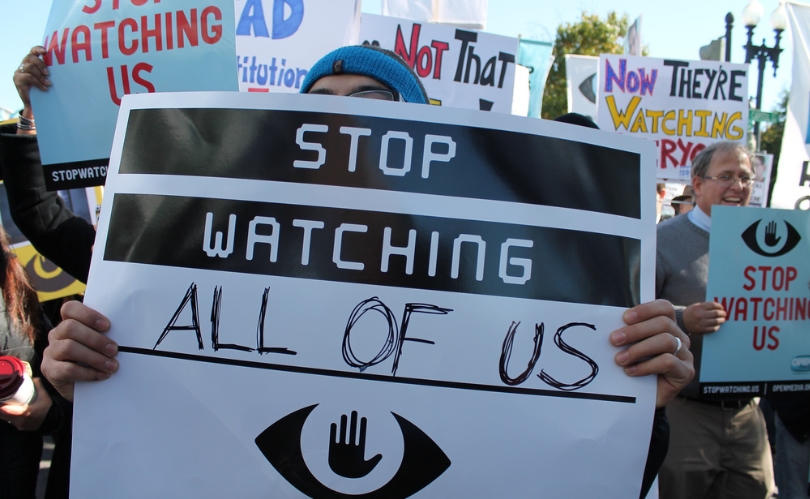AT&T customers relentless in their efforts to sue NSA for government’s illegal mass surveillance program
11/02/2015 / By Julie Wilson

Represented by digital-rights watchdog Electronic Frontier Foundation (EFF), five AT&T customers are suing the National Security Agency (NSA), and others involved in the illegal mass surveillance of the American public, which was exposed when former CIA employee Edward Snowden blew the whistle on the U.S. government’s secret spy program.
“Filed in 2008, Jewel v. NSA is aimed at ending the NSA’s dragnet surveillance of millions of ordinary Americans and holding accountable the government officials who illegally authorized it,” says EFF, a non-profit dedicated to defending civil liberties in the digital world.
The seven-year long class action lawsuit filed in the Northern District of California has undergone ups and downs as the plaintiffs seek justice after the NSA was caught tapping into the fiber optic cables of U.S. telecommunications companies, intercepting emails, texts, phone records and other communications from millions of innocent Americans, reports Courthouse News Service.
Digital rights watchdog says mass collection of data on innocent Americans is unconstitutional
On Wednesday, EFF asked the Ninth Circuit “to rule that a government mass surveillance program is unconstitutional,” pointing to evidence provided by whistleblower Mark Klein, a former AT&T technician who discovered his company was rerouting Internet traffic to a secret NSA room in San Francisco.
The case also “includes declarations from three NSA whistleblowers, along with a mountain of other evidence, including secret government documents recently published in the Guardian and Washington Post that confirm our allegations. Two of the most critical documents directly reference the ‘upstream’ collection of communications from fiber optic cables and the domestic telephone records collection program, which was subsequently confirmed by the government in June 2013.”
EFF: Government still harming people by upholding illegal spying
EFF’s lawsuit “also targets the individuals responsible for creating, authorizing and implementing the illegal program, including DIRNSA Keith Alexander and former Vice President Dick Cheney, Cheney’s former chief of staff David Addington, former Attorney General and White House Counsel Alberto Gonzales, and other individuals who ordered or participated in the warrantless domestic surveillance.”
In 2009, the Obama administration tried to dismiss their case, “claiming that litigation over the wiretapping program would require the government to disclose privileged ‘state secrets’ and that it was immune from suit.”
While the court ruled that the case should be dismissed, in December 2011, “the 9th U.S. Circuit Court of Appeals ruled that Plaintiffs’ allegations were sufficient to provide standing and Jewel could proceed in district court.”
Government uses “state secrets” excuse to withhold information about spy program
“In July 2012, EFF moved to have the court declare that the FISA law applies instead of the state secrets privilege; in September 2012, the government renewed its ‘state secrets; claims and the matter was heard by the federal district court in San Francisco on Dec. 14, 2012.”
“In July 2013, the court rejected the government’s ‘state secrets’ argument, ruling that any properly classified details can be litigated under the procedures of the Foreign Intelligence Surveillance Act (FISA). The court did dismiss some of our statutory claims, but the other claims, including that the program violates the First and Fourth Amendments of the Constitution, continue,” EFF reports.
EFF attorney Richard Wiebe urged the three-judge panel to rule that the dragnet surveillance program “unconstitutionally searches and seizes communications.”
“The government has been conducting its mass Internet surveillance for the past 14 years. If we’re correct, that’s an ongoing Fourth Amendment violation that every day causes continuing harm not just to the plaintiffs but to millions of other Americans. We’ve been seeking a ruling on this claim since 2008 when we filed the complaint. In all that time, the harm has continued,” said Wiebe.
The three-judge panel includes one Bush and two Clinton appointees. Both administrations condoned and expanded the NSA’s spy program during their time in office.
Sources:
Tagged Under: Edward Snowden, EFF, Electronic privacy, Illegal spying, NSA, surveillance, Whistleblowers


















